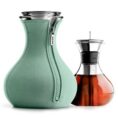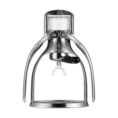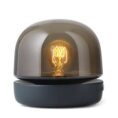What Happens to Your Body When You Stop Drinking Alcohol
Transitioning to sobriety triggers a cascade of physiological changes in the body, each with its own timeline and implications for health and well-being. Drinking even small amounts of alcohol can have a temporary diuretic effect. “When you stop drinking alcohol, you restore ADH levels to their natural state, and your kidneys expel the appropriate amount of water.” By retaining water and staying hydrated, your whole body will feel better. It is important to note that a home liver test is not a substitute for a professional medical diagnosis. If you are experiencing symptoms of liver disease or have concerns about your liver health, What Happens to the Body When You Stop Drinking Alcohol it is important to consult with a healthcare provider. A home liver test can serve as a helpful tool for monitoring your liver function over time, but it should be used in conjunction with regular medical check-ups and liver function tests.
What is alcohol withdrawal?
- Relative to those who have less than one drink per week, men who have two or more drinks per day increase their lifetime risk of cancer by 3.1%, and that number goes up to 5.3% for women.
- It should not be used in place of the advice of a physician or other qualified healthcare providers.
- Stopping drinking could make your life feel brighter in all kinds of ways, as well as helping your long-term health.
Hepatitis C is a viral infection that can cause inflammation https://ecosober.com/ in the liver, leading to liver damage and even liver failure. It is usually spread through sharing needles, unprotected sex, or from an infected mother to her baby during childbirth. The symptoms of hepatitis C can range from mild to severe and can include fatigue, joint pain, and jaundice. It is important to get tested if you think you may have been exposed to hepatitis C since early treatment can prevent serious liver damage. One big change that happens when a person quits drinking is less swelling.
CleanCo Partners with Raising The Bar alcohol-free subscription box
Many of us are guilty of having too much alcohol, particularly on a special occasion or at the end of a long week. However, abstinence is becoming more mainstream – and people turning to non-alcoholic alternatives says it does wonders for their mental and physical health. Stopping drinking could make your life feel brighter in all kinds of ways, as well as helping your long-term health. If you’re ready to stop, arming yourself with strategies and tips can help you or a loved one take small steps towards big results. By taking the decision to stop drinking, you could reduce your risk of developing many serious alcohol-related diseases.
Improved Mood
- If you’re not ready to completely give up your spirits, know that reducing your alcohol intake can also have major health benefits.
- If you’re overweight and regularly drink alcohol, you should find that you lose weight if you stop drinking.9 And not drinking at all will make it easier to maintain a healthy weight.
- Consequently, upon stopping drinking, there’s a significant dip in dopamine levels until the brain resumes its normal production.
- If you’re not sure if your drinking crosses a certain line or not, try measuring your alcohol intake.
- Never mind that mental focus (also mentioned above) can foster stronger emotional and physical connections—getting you out of your head and into your body to enjoy sexual experiences more.
- No matter your reason, quitting alcohol is a daunting task – one you can conquer with the right knowledge and support.
Whilst drinking three or more drinks per day increases the risk of stomach and liver cancer. I’ve spent the last seven years researching and understanding alcoholism, addiction, and how people get sober. Additionally, I examine the Sober living house way mental and physical health as well as our relationships with others impact the reasons people drink and their role in maintaining sobriety long-term.
Maintain a healthy diet
Giving up drinking may let you focus on your relationships, work, and health. It also may ease any depression and anxiety and elevate your self-esteem. Alcohol can worsen depression and be an emotional crutch, making it difficult to experience true happiness outside of drinking. Stopping alcohol can make you feel happier by allowing you to experience positive emotions without alcohol. Quitting alcohol can help reduce the depression and anxiety that alcohol can bring and significantly improve your situation in life, increasing your overall happiness.
We do not offer individual medical advice, diagnosis or treatment plans. Cognitive functions—including problem solving, decision making and self-regulation skills—can also improve with continued sobriety, adds Dr. Kellogg. The CDC considers a standard drink as 0.6 ounces of pure alcohol—or roughly 12 ounces of beer, 5 ounces of wine or 8 ounces of malt liquor. Among the many ways that alcohol can suppress the immune system, booze can negatively impact the balance of the gut microbiota, according to data published in 2021 in the International Journal of Molecular Sciences. But, opting for a mocktail may be a better choice if you are trying to manage your weight, feel more energized, or simply want to lead a healthier lifestyle.
Can giving up alcohol affect your mental health?
- Your risk of developing cancer will decrease, and your liver function will have greatly improved.
- It’s also important to note that everyone responds to alcohol differently and your height, weight and gender all play a part, as well as how much you have eaten and how much sleep you’ve had.
- If you can’t control it, it may lead to a condition called alcohol use disorder.
- Although each person’s experience will be unique, here’s a general timeline of what happens when heavy drinkers give it a rest.
Although many people use alcohol to help them get to sleep more quickly, drinking actually disrupts your sleep cycle later in the night. You spend less time in a deep sleep and more time in the less restful rapid eye movement (REM) stage of sleep, so you’ll feel tired the next day. If you stop drinking completely, one of the first things you notice should be improved energy levels, better sleep and finding it easier to wake up in the morning. When you’re ready to stop, there are lots of benefits – from reducing your blood pressure and better sleep https://tumanitassevillano.es/sober-living/alcohol-facts-and-statistics-national-institute-on/ in the short-term, to many other important longer-term health benefits. If you already have high blood pressure or hypertension, you might be well served to stop drinking.





